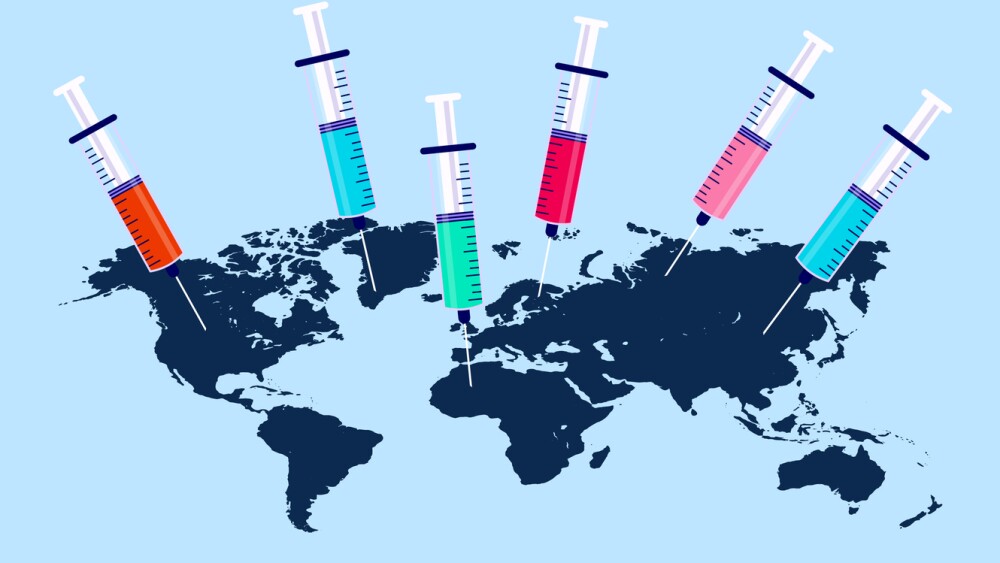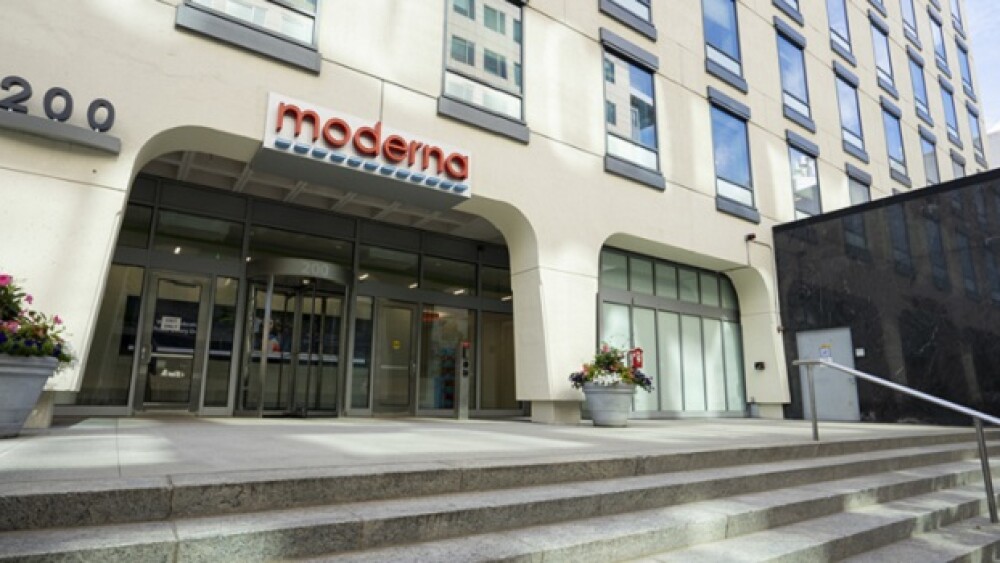Afatinib is an investigational orally administered irreversible inhibitor of both the epidermal growth factor receptor (EGFR) and human epidermal receptor 2 (HER2) tyrosine kinases. Afatinib is under development in several solid tumors including NSCLC, breast and head and neck cancer.
The LUX-Lung 1 trial compared afatinib to placebo in over 580 patients with advanced NSCLC who had received chemotherapy and a prior EGFR tyrosine kinase inhibitor (EGFR TKI; gefitinib or erlotinib);(1) results show:
- Afatinib did not improve OS compared to placebo 10.78 months vs. 11.96 months, respectively (HR = 1.08, 95% CI 0.86 to 1.35)(1)
- As a secondary endpoint, afatinib extended PFS three-fold compared to placebo (3.3 months vs. 1.1 months) (HR = 0.38, 95% CI 0.31 to 0.48, p<0.0001). The improvement in PFS was apparent across all patient subgroups and has been confirmed by independent review(1)
- At 8 weeks, there was a significantly higher disease control rate (stable disease and tumor shrinkage) in those patients who took afatinib (58%) vs. those taking placebo (19%), which was also independently verified (p<0.0001)(1)
- Improvement of the lung cancer-related symptoms of cough, dyspnea and pain was observed in the afatinib arm vs. placebo. In addition, the time to deterioration of cough, individual dyspnea items and chest pain was longer in the afatinib arm(2)
- The two most common side effects associated with treatment with afatinib were diarrhea (87% all grades, with 17% Grade 3) and rash/acne (79% all grades, with 14% Grade 3). These side effects were usually well-managed by supportive care and dose reduction(2)
It is important to note that the overall study population, which included patients who received chemotherapy and one line of treatment with a first-generation EGFR inhibitor for at least 12 weeks, had a better performance status and lived longer than originally anticipated for patients with advanced NSCLC. This information warrants further investigation of subpopulations in treatment of advanced NSCLC.
LUX-Lung 2 Trial(3)
Updated data from the phase II LUX-Lung 2 trial were also presented at the ESMO Congress. The trial evaluated patients with advanced NSCLC who have EGFR mutations and were either untreated or progressed after one course of chemotherapy. Analysis included the primary endpoint of objective response rate (ORR) as assessed by independent review. Among 129 patients who received afatinib, the confirmed ORR by independent review was 57% and was similar to the confirmed ORR by investigator assessment (60%). The secondary endpoints included OS (24 months), PFS (14 months) and disease control rate (86%). The most common drug-related adverse events were diarrhea (95% all grades, with 19% Grade 3) and rash/acne (91% all grades, with 21% Grade 3).
"Boehringer Ingelheim Oncology is dedicated to improving outcomes for patients with lung cancer and has multiple compounds in development to treat this disease," said Christopher Corsico, M.D., M.P.H., U.S. medical director, Boehringer Ingelheim Pharmaceuticals, Inc. "We are committed to further developing afatinib for the treatment of lung cancer and other tumors where continued unmet medical needs require additional treatment options for physicians and their patients."
About Lung Cancer
Lung cancer is the second most common cancer and kills more people than any other cancer. In 2010, approximately 222,250 new cases of lung cancer will be diagnosed in the United States, with 157,300 Americans dying from the disease. NSCLC is the most common form of lung cancer, accounting for about 85% of all lung cancers.(4) Lung cancer remains an area of high unmet need, especially in its advanced stages where it is particularly aggressive and patients have limited treatment options. There is no FDA-approved therapy for patients with advanced lung cancer who have failed chemotherapy and progressed after treatment with an EGFR TKI.
About Afatinib's Clinical Trial Program: LUX Trial Program
The LUX trial program is a comprehensive and robust program that comprises more than 10 trials conducted across the globe, investigating afatinib in a variety of different solid tumor types, including NSCLC, breast and head and neck cancer.
LUX-Lung 1 is a phase IIb/III trial investigating afatinib plus best supportive care (BSC) versus placebo plus BSC in NSCLC patients who were previously treated with first-line chemotherapy and first-generation EGFR TKIs, erlotinib or gefitinib.
LUX-Lung 2 is a phase II trial evaluating afatinib in NSCLC patients with EGFR mutations, either treatment naïve or after one line of chemotherapy.
In two ongoing global phase III trials, LUX-Lung 3 and LUX-Lung 6, the efficacy and safety of afatinib is compared to standard chemotherapy for first-line treatment of NSCLC patients with EGFR mutations in different geographical regions.
Another trial, LUX-Lung 5, is a global phase III trial in patients previously treated with erlotinib or gefitinib. This is the first randomized phase III trial investigating whether patients who initially benefit from treatment with afatinib alone may further benefit from afatinib beyond progression when given in combination with chemotherapy.
Afatinib is also being investigated in breast and head and neck cancer, as well as in a variety of additional solid tumors.
About Boehringer Ingelheim in Oncology
Building on scientific expertise and excellence in the fields of pulmonary and cardiovascular medicine, metabolic disease, neurology, virology and immunology, Boehringer Ingelheim has embarked on a major research program to develop innovative cancer drugs. Working in close collaboration with the international scientific community and a number of the world's leading cancer centers, Boehringer Ingelheim is committed to discovering and developing novel cancer treatments. This commitment is underpinned by using advances in science to develop a range of targeted therapies in areas of medical need, including various solid tumors and haematological cancers.
The current focus of research includes compounds in three areas: angiogenesis inhibition, signal transduction inhibition and cell-cycle kinase inhibition. Afatinib is currently in phase III clinical development in NSCLC. Apart from afatinib, Boehringer Ingelheim's late-stage oncology portfolio includes BIBF 1120, also in phase III development for the treatment of patients in two different tumor types, advanced NSCLC and ovarian cancer. BIBF 1120 is an orally-administered investigational triple angiokinase inhibitor that targets three of the receptor tyrosine kinases shown to aid in the regulation of angiogenesis: fibroblast growth factor receptor (FGFR), platelet-derived growth factor receptor (PDGFR) and vascular endothelial growth factor receptor (VEGFR).
In the area of cell-cycle kinase inhibition, Boehringer Ingelheim is developing inhibitors of polo-like kinase 1 (Plk1), a protein that is involved in the processes of cell division. These molecules are in the earlier stages of clinical development.
About Boehringer Ingelheim Pharmaceuticals, Inc.
Boehringer Ingelheim Pharmaceuticals, Inc., based in Ridgefield, CT, is the largest U.S. subsidiary of Boehringer Ingelheim Corporation (Ridgefield, CT) and a member of the Boehringer Ingelheim group of companies.
The Boehringer Ingelheim group is one of the world's 20 leading pharmaceutical companies. Headquartered in Ingelheim, Germany, it operates globally with 142 affiliates in 50 countries and more than 41,500 employees. Since it was founded in 1885, the family-owned company has been committed to researching, developing, manufacturing and marketing novel products of high therapeutic value for human and veterinary medicine.
In 2009, Boehringer Ingelheim posted net sales of US $17.7 billion (12.7 billion euro) while spending 21 percent of net sales in its largest business segment, Prescription Medicines, on research and development.
For more information, please visit http://us.boehringer-ingelheim.com and follow us on Twitter at http://twitter.com/boehringerus.
References:
- Miller et al. Phase IIb/III double-blind randomized trial of BIBW 2992, an irreversible inhibitor of EGFR/HER1 and HER2 + best supportive care (BSC) versus placebo + BSC in patients with NSCLC failing 12 lines of chemotherapy and erlotinib or gefitinib (LUX-Lung 1). Abstract LBA1, European Society of Medical Oncology (ESMO) Congress, Milan, October 2010.
- Miller et al. Phase IIb/III trial of afatinib (BIBW 2992) + best supportive care (BSC) vs. placebo + BSC in patients failing 12 lines of chemotherapy and erlotinib/gefitinib (LUX-Lung 1). Oral presentation, European Society of Medical Oncology (ESMO) Congress, Milan, October 2010.
- Yang et al. A Phase II study of BIBW 2992 in patients with adenocarcinoma of the lung and activating EGFR/HER1 mutations (LUX-Lung 2). Abstract 367PD, poster presentation at the European Society of Medical Oncology (ESMO) Congress, Milan, October 2010.
- American Cancer Society. Cancer Facts and Figures: 2010. Available at: http://www.cancer.org/acs/groups/content/@epidemiologysurveilance/documents/document/acspc-026238.pdf. Last accessed October 7, 2010.
*Afatinib is an investigational compound; its safety and efficacy have not been fully established.
SOURCE Boehringer Ingelheim Pharmaceuticals, Inc.




